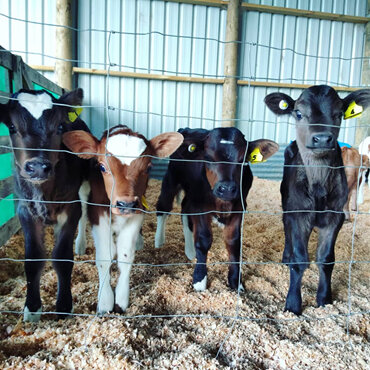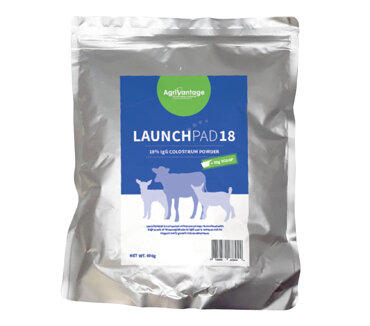- Quality colostrum; not all colostrum is created equally
- Over 50% of cows will not have adequate colostrum, with no pattern of who will be good or bad
- At 22% brix a calf requires 4 litres of colostrum in the first 24 hours, at 18% they need 8 litres!
- Bacterial contamination of colostrum (cupping dirty cows for gold colostrum collection) can lower the absorption of antibodies.
Why is this important?
There have been several studies that show the long-term benefits of the early growth phase in young stock:
- Doubling birth weight by day 56 was shown to be 7 times more important than sire selection in terms of milk production.
- 22% of 1st lactation milk yield can be explained by pre-weaning daily weight gain. This effect extends into 2nd and 3rd lactation
- Calves that are poorly grown before weaning, but reach target at calving have lower production in their 1st lactation when compared to those well-grown animals through this period.
It is critically important that we avoid any reductions in growth rates during these first critical months of life. Calves that don’t absorb enough antibodies have a higher mortality rate, are more prone to becoming ill and have long-term reductions in animal production.
A fully functional immune system is the best way to ensure that your calves get off to the best start, with effects that are seen throughout their productive life.
What can we do to tip the tables in our favour?
- Calf Pick-ups; calves should be picked up a minimum of twice per day
- Brix refractometer; available through the Shoof catalogue. Can be used to test your colostrum to make sure you are only feeding good quality
- Launchpad18; a powdered antibody that can be added to 18-21% Brix colostrum to quickly and easily bring the standard to 22%
- Multimin; injecting Multimin at birth decreases the number of sick calves by 58% and results in 52% fewer death in calves
- Testing 1-week old calves’ antibody level; ensure your calves are getting sufficient antibodies to minimise the risk of disease in the first 12 weeks of life.
- Scour vaccines; consistently reduce scour in calves.
Dr David Moors BSc BVSc MANZCVS (Medicine of dairy cattle)






